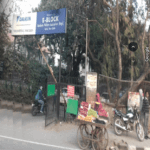

In India, the Resident Welfare Association (RWA) is a non-profit group that advocates for the community it serves, whether it is a residential society or a colony. The RWA has much power in the local community because of its legal standing and ability to make changes within its influence.
Under the Societies Registration Act of 1860, the Resident Welfare Associations have been officially recognised. According to the Societies Registration Act in several countries, RWAs are given a wide range of statutory authorities and legal protections. This formidable legal organisation has full authority over managing and administrating any assets it has incorporated.
The RWA and its president are highly regarded in the most thriving communities. Improvements to municipal services like electricity and water and common amenities like roads and streetlights are included.
The RWA could also oversee other businesses, like bazaars, shops, transportation, and banks. The RWA plays a big part in ensuring these services dash safely.
In sum, the Resident Welfare Association is a vital institution in the Indian states, responsible for the protection and well-being of the people under their watch. It is of the highest significance that RWAs be given the authority and assistance they need to carry out their roles in maintaining the facilities and services that are essential to a community.
RWA New Delhi, 9/277 Dakshin Puri Extension, New Delhi, India.
Community Center Sec. 13 Urban Estate Sector 13 Extension, Karnal 132001 (Haryana).
Resident Welfare Association (RWA) is a non-government organisation (NGO) registered under the Societies Registration Act of 1860. It looks out for the well-being and interests of a housing society or colonies in a city, with the head office in Human Care Charitable Trust, D-94 Saket, New Delhi, Delhi 110017. The company has around 7 employees.
In the case of the president’s absence, the Vice-President is responsible for performing all obligations as if he/she held the executive office.
A general secretary assumes a position of authority to manage the records of an organisation’s members and the associated financial accounts.
In the unavailability of the general secretary, a secretary fills in and aids the RAW’s general secretary as needed.
A Treasurer is responsible for collecting donations, memberships, subsidies, and contributions from individuals and the public.
Some of the key services and specialities of RWA are as follows:-
RWA's success has skyrocketed, and the industry has taken notice. They've had nothing but success and have been recognised for it in several ways, such as- in conjunction with the Andhra Pradesh Federation of Resident Welfare Associations (APFERWAS), Ananda CitYzen Trust honours the top RWAs in 2019 and the 5 city Resident Welfare Associations received the 2019 Tamil Nadu Pollution Control Board (TNPCB) Green Awards.
011 2652 4607
You can contact the RWA at 011 2652 4607 or visit its Human Care Charitable Trust office, D-94 Saket, New Delhi, Delhi 110017, India.
No, RWAs are nonprofit organisations, and although these organisations wield considerable weight and influence, this has no bearing on your claim to your properties. As a result, you cannot invest in an RWA.
RWAs are nonprofit organisations, and although these organisations wield considerable weight and influence, this has no bearing on your claim to your properties.
No, RWAs are nonprofit organisations, and although these organisations wield considerable weight and influence, this has no bearing on your claim to your properties. As a result, you cannot donate your property to the Resident Welfare Association (RWA).
No, RWAs are not-for-profit organisations, and despite their considerable clout, it will not affect your ownership claims. It means an RWA can’t do property management for you.
Those living in a neighbourhood or society often band together to form an organisation called the Resident Welfare Association (RWA), which serves their interests. Hence, it’s safe to say that their organisation may be relied upon.
Being a non-profit organisation, an RWA must enhance conveniences and communal areas, such as residential streets, street lighting, sewerage, groundwater recharge, general hygiene, and municipal utilities, such as water and electrical power. Also, individual RWAs may be required to conduct significantly more activity in the properties of renowned communities.
100% Service, 0% Brokerage. We charge our customers nothing. Not today, not ever.
Our sales personnel are accountable for every step - site visits, home loans & post-sales.
Highly unlikely, but if you find a lower price anywhere, tell us and we will match it.














